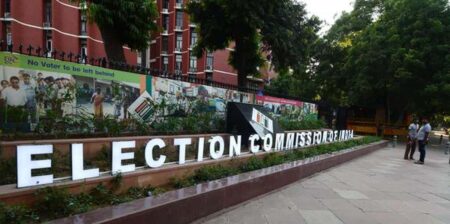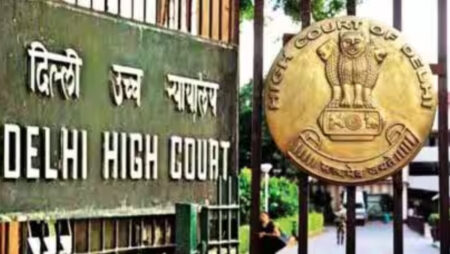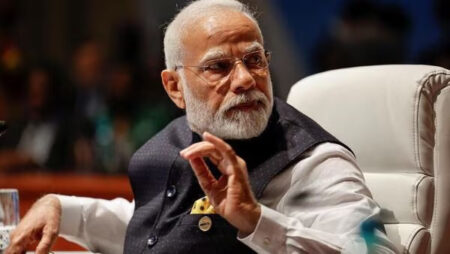Prostitution is finally recognised as a profession by the Supreme Court, which stated that sex workers are entitled to dignity and equal protection under the law.
The Supreme Court said that sex workers are entitled to dignity and equal protection under the law in its decision. Sex workers should not be harassed or penalised by the police, according to the three-judge panel, and their concerns should be considered seriously.
“Every citizen of our country, regardless of profession, has a right to a decent existence under Article 21.”
“Sex workers are entitled to equal protection under the law,” wrote the three-judge bench, which included Justices L Nageswara Rao, BR Gavai, and AS Bopanna. When it is clear that the sex worker is an adult who is engaged with permission, authorities must refrain from intervening or engaging in any criminal conduct. Article 21 of the Constitution guarantees everyone in our country the right to a good life, regardless of employment.”
In its ruling, the Supreme Court stated that sex workers should not be detained, penalised, or harassed due to brothel raids because voluntary sex work is not illegal, whereas only running the brothel is.
In addition, it directed police officers not to discriminate against sex workers and advocated for sex workers to be educated.
The three-judge panel also ordered the media to take “utmost care not to divulge the identity of sex workers, whether as victims or accused, during arrest, raid, and rescue operations, and not to print or telecast any images that may result in such revelation,” according to the decision.
The supreme court went on to say that the orders it had issued would keep the field open until the Union Government came up with laws.
Prostitution in India
Prostitution is thought to be the world’s oldest occupation.
Their presence in India may be traced back to ancient times, with scriptures identifying three types of women: those who were chaste and committed to a single man, those who were not chaste and loyal to a single man, and those who were not chaste and devoted to a single man (even if the man had many wives).
The second group consisted of women who avoided contact with males and lived like nuns. Women who had several partners and were not connected to a single man were the third kind.
Such ladies were eventually referred to as the wives of temple deities or Devdasis. They saw their god in all of their lovers. Ancient sex workers, prostitutes, and holy concubines are used in modern literature to characterise this final group of women.
The British military is said to have created and maintained brothels for its troops across India in the 1800s. According to a BBC investigation, the girls were recruited and paid directly by the military, fixing their fees. The girls were mostly in their early teens and came from poor rural Indian homes.
The British have long since left, yet prostitution is still practised.
While some estimates put the number of sex workers in India at about 8,00,000, the actual figure might be as high as 20 lakh.
In India, some laws govern prostitution.
While the profession has always been popular in India, its legal position has always been a source of contention. Many have called for it to be legalised throughout the years.
The Indian Penal Code (IPC) does not make prostitution unlawful. Still, it does make numerous behaviours associated with it illegal.
Sex workers can pursue their trade under the Immoral Traffic (Prevention) Act of 1986. Actions such as pimping and owning a brothel are illegal.
Anyone who earns money through prostitution is likewise subject to the law. Procuring, inducing, or abducting a person for prostitution is also prohibited
According to the legislation, the practice is also prohibited within a 200-meter radius of any public location. A sex worker must pick an isolated spot to engage in legal prostitution.
The legitimacy of prostitution as a profession is therefore called into doubt.
Significance of the Supreme Court’s decision
Sexual violence, mental abuse, and physical attacks by customers are common occurrences for sex workers in India.
Their living circumstances are also horrible; clogged lanes, cramped rooms, and stinky neighbourhoods harm their health, increasing health-related issues. Cervical cancer, HIV, and STDs are rising since no actions have improved their situation.
They also experience stigma and prejudice, making it difficult to defend their health and well-being.
Given their circumstances, the Supreme Court’s judgement looks to be a ray of hope for them.
The Supreme Court thinks that the stigma associated with prostitution would be reduced by issuing the decision.
The ruling requires that a sex worker’s complaint, whether sexual or not, be taken seriously by the police. For sex workers, this has long been a problem.
They claim that their rape reports are not taken seriously, and that police officials disregard them.
Furthermore, many sex workers claim that the police are the ones that victimise them by arresting or harassing them. The court, however, has ordered that this be halted.
The court has also ordered that any sex worker who is the victim of sexual assault receive the same services as a sexual assault survivor, including prompt medical treatment.
In the fight for equality, the court’s decision is a positive step in the right direction.
Read More – Sex Workers must be entitled to equal rights as of a citizen of the country: Supreme court













